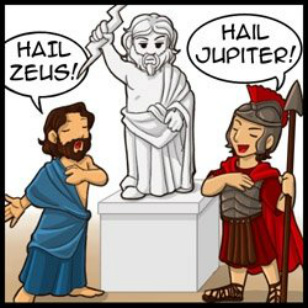I have gotten the chance to travel along the English Scholarship Pathway, in hopes that I choose to take Scholarship English in year 13. The first of the tasks is to read through a book called 'In Perspective'. From this book, there are different lots of information on different subjects such as numbers in literature or the works of Shakespeare. We are to choose three different subjects of these options, study them and do some extra research, then we are to share the information on our blogs.
Out of all the options I have decided to go with these three:
- Greek and Roman gods
- Literary monsters - Gorgons
- Plant and Flower symbolism - Hyacinths
This post will only feature my first option and I will be putting the other two up on another date.
Greek and Roman gods
Honestly, with Greek and Roman gods, I won't have to do much actual research because I can just look at my own blog posts for references.
Greek and Roman myths were narratives and sometimes even depictions that were thought to explain beginnings, the past and how heroes and people handled their own difficulties. As the Roman Empire expanded they took the concepts of these gods from the Greeks and fit them into their own form of mythology. The myths and legends are usually quite similar or even exactly alike except for one part, the Romans have almost completely different names for the gods and heroes. Some names are similar such as Heracles (Greek) and Hercules (Roman).
I have decided that I will do a small section on each of these god, goddesses and their counterparts -
Aphrodite or Venus, Apollo, Ares or Mars, Artemis or Diana, Athena or Minerva, Demeter or Ceres, Dionysus or Bacchus, Hades or Pluto, Hephaestus or Vulcan, Hera or Juno, Hermes or Mercury, Hestia or Vesta, Poseidon or Neptune and Zeus or Jupiter.
Greek - Aphrodite is the goddess of love, beauty and desire. She was forced to marry Hephaestus and there are many versions of the myth where this happens, the two most well-known are where Zeus forces Aphrodite into marriage with Hephaestus to stop the gods from fighting for her hand and the second where Hephaestus rigs Hera's throne and it straps her down until Hephaestus gets Aphrodite's hand in marriage (and it is said in some myths that this was before Hephaestus had a place among the gods and he demanded that as well). Even though married, like most gods, she cheats on her husband, often with Ares, god of war, murder and bloodshed. She has had numerous children with Ares, but none to name with Hephaestus's blood. One of her most famous children with Ares was Eros, the god of sexual love and beauty as well.
Roman - Venus is the goddess of love, beauty and desire. She was forced to marry Vulcan and there are many versions of the myth where this happens, the two most well-known are where Jupiter forces Venus into marriage with Vulcan to stop the gods from fighting for her hand and the second where Vulcan rigs Juno's throne and it straps her down until Vulcan gets Venus's hand in marriage (and it is said in some myths that this was before Vulcan had a place among the gods and he demanded that as well). Even though married, like most gods, she cheats on her husband, often with Mars, god of war, murder and bloodshed. She has had numerous children with Mars, but none to name with Vulcan's blood. One of her most famous children with Mars was Cupid, the god of sexual love and beauty as well.

Greek - Apollo was the god of music, poetry, art, oracles, archery, plague, medicine, sun, light and knowledge. He is the son of Zeus along with his twin sister Artemis, goddess of the hunt. Apollo was one of the few gods that the Romans kept the same name. In Greek mythology, he was most widely known as the god of light. In Greek myth's, he wasn’t known as much as the god of light, as he was the god of healing and prophecy. Although, in Greek myth's his son, Asclepius, is the god of medicine as well as Apollo.
Roman - Apollo was the god of music, poetry, art, oracles, archery, plague, medicine, sun, light and knowledge. He is the son of Jupiter along with his twin sister Diana, goddess of the hunt. Apollo was one of the few gods that the Romans kept the same name. In Greek mythology, he was most widely known as the god of light. In Roman myth's, he wasn’t known as much as the god of light, as he was the god of healing and prophecy. Although, in Roman myth's his son, Vejovis, is the god of medicine as well as Apollo.
Ares or Mars
 Greek- Ares was the god of violence and war. He was another child of Zeus and Hera. He was more known to represent the bloodlust and violence in war, rather than the strategy and intelligence like his sister, Athena. Ares was most well known for being Aphrodite's lover, even while she was married to Hephaestus. Ares wasn't mentioned in too many stories and even when he was he was often being ridiculed, like the instance where Hephaestus caught him and Aphrodite together, trapping them in an unbreakable net, leaving them there for the gods to make fun of.
Greek- Ares was the god of violence and war. He was another child of Zeus and Hera. He was more known to represent the bloodlust and violence in war, rather than the strategy and intelligence like his sister, Athena. Ares was most well known for being Aphrodite's lover, even while she was married to Hephaestus. Ares wasn't mentioned in too many stories and even when he was he was often being ridiculed, like the instance where Hephaestus caught him and Aphrodite together, trapping them in an unbreakable net, leaving them there for the gods to make fun of.
Roman - Mars was the god of violence and war. He was another child of Jupiter and Juno. He was more known to represent the bloodlust and violence in war, rather than the strategy and intelligence like his sister, Minerva. Mars was most well known for being Venus' lover, even while she was married to Vulcan. Mars wasn't mentioned in too many stories and even when he was he was often being ridiculed, like the instance where Vulcan caught him and Venus together, trapping them in an unbreakable net, leaving them there for the gods to make fun of.
Artemis or Diana
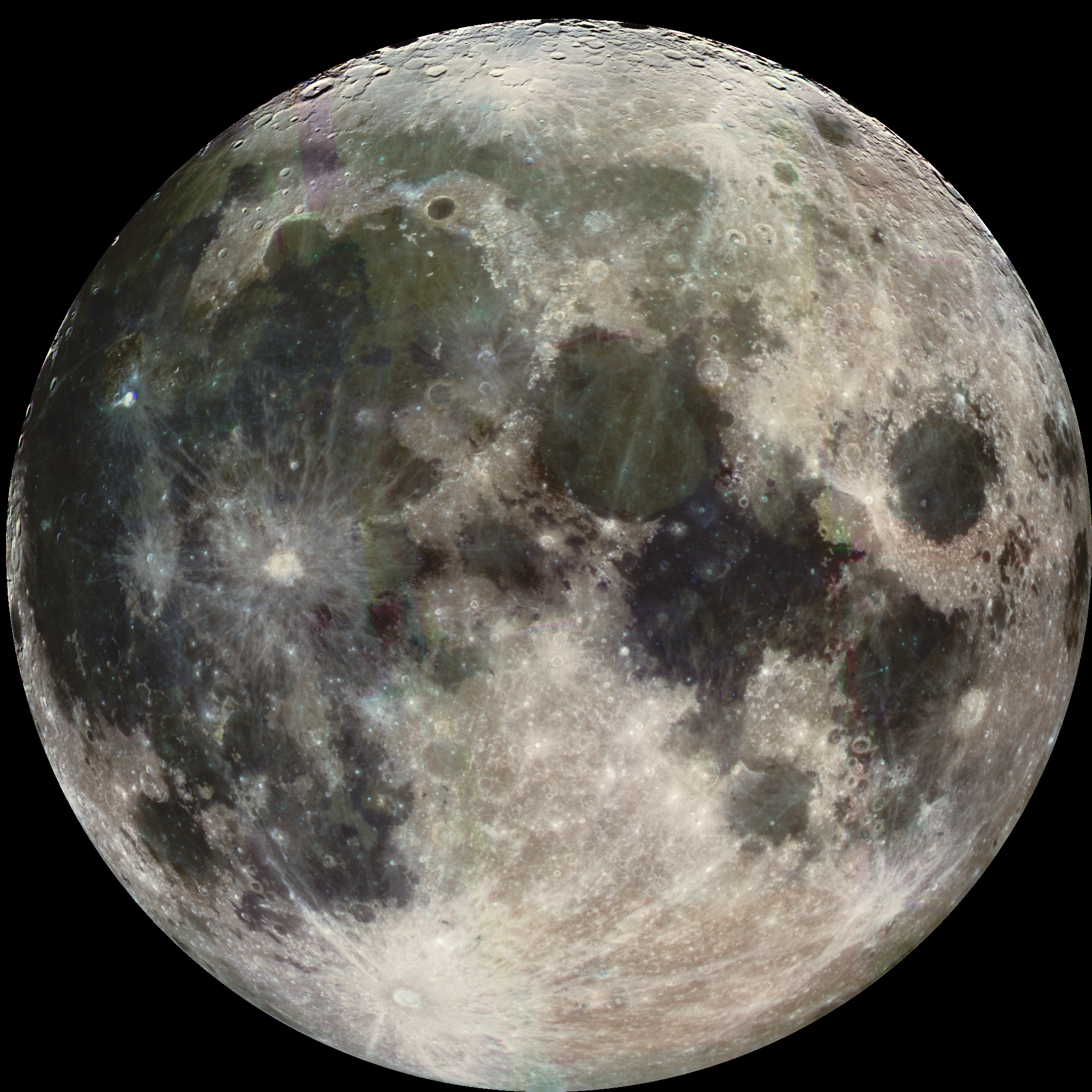
Greek - Artemis was the goddess of wild animals, the moon, the hunt, chastity and childbirth. She is the daughter of Zeus along with her twin Apollo, god of light. Artemis was most well-known for leading The Hunters of Artemis, the hunt are a band of all-female warriors who wield bows and have sworn off of all romance. The warriors are of any species, demigod, nymph or mortal mainly. Artemis is also known for being an eternal maiden and having been forever without children, instead, leading the young women in her hunt. She was often accompanied by her hunting wolves as well as her huntresses.
Roman - Diana was the goddess of wild animals, the moon, the hunt, chastity and childbirth. She is the daughter of Jupiter along with her twin Apollo, god of light. Diana is known for being an eternal maiden and having been forever without children. It is unknown whether Diana leads a hunt like her Greek counterpart, Artemis.
Athena or Minerva
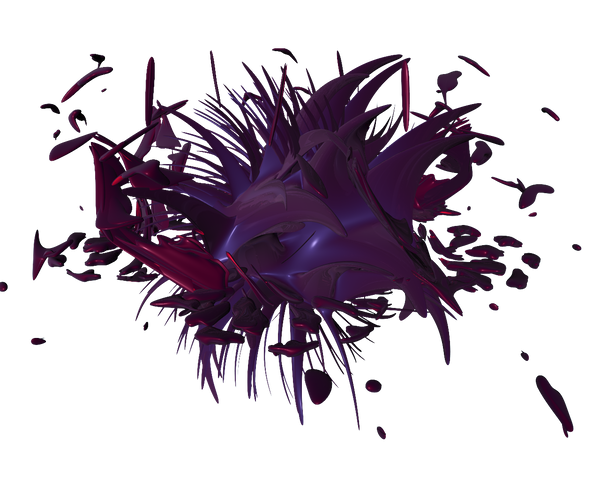
Greek - Athena was the god of wisdom, weaving, the arts, warfare and reason. She is also known to be the favourite daughter of Zeus. She was one of the most unique goddesses, one of the reasons being her birth. Athena was born from a crack in Zeus' skull after Hephaestus struck him there because of his splitting headache. Sometime before Athena's birth, Metis, her mother had bore a child with Zeus, then the Oracle of Delphi predicted that shall Metis have a male child, he shall succeed Zeus, panicked Zeus took Metis and swallowed her whole, after time Athena was born and grew while in Zeus' body.
Roman - Minerva was the god of wisdom, weaving, the arts, warfare and reason. She is also known to be the favourite daughter of Jupiter. She was one of the most unique goddesses, one of the reasons being her birth. Minerva was born from a crack in Jupiter's skull after Vulcan struck him there because of his splitting headache. Sometime before Minerva's birth, Metis, her mother had bore a child with Jupiter, then the Oracle of Delphi predicted that shall Metis have a male child, he shall succeed Jupiter, panicked Jupiter took Metis and swallowed her whole, after time Minerva was born and grew while in Jupiter's body.
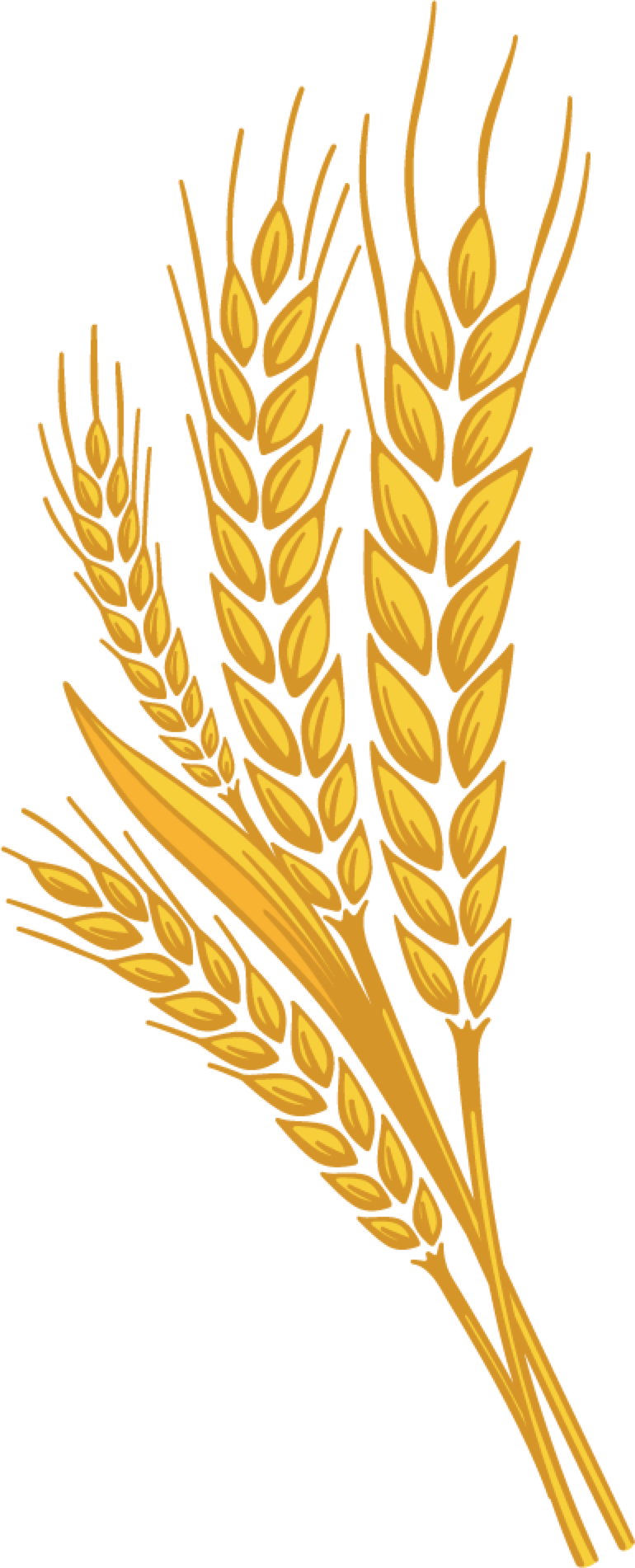 Greek - Demeter was the goddess of agriculture, wheat and harvest. Demeter is most well-known for her daughter Persephone and when Persephone was kidnapped by Hades for him to take her as his bride. She was ever so protective over Persephone because she was known to be Demeter's only godly child and she didn't want her to be taken away by another god. Eventually, Persephone was taken by Hades and made his wife. Demeter refused to let crops grow until her daughter was returned to her, but Hades wouldn't let her go. Zeus decided to settle the argument by letting Persephone stay with Demeter for half of the year and the other half with Hades. When Persephone is with Hades is when winter occurs and Demeter refuses to let crops grow.
Greek - Demeter was the goddess of agriculture, wheat and harvest. Demeter is most well-known for her daughter Persephone and when Persephone was kidnapped by Hades for him to take her as his bride. She was ever so protective over Persephone because she was known to be Demeter's only godly child and she didn't want her to be taken away by another god. Eventually, Persephone was taken by Hades and made his wife. Demeter refused to let crops grow until her daughter was returned to her, but Hades wouldn't let her go. Zeus decided to settle the argument by letting Persephone stay with Demeter for half of the year and the other half with Hades. When Persephone is with Hades is when winter occurs and Demeter refuses to let crops grow.
Roman - Ceres was the goddess of agriculture, wheat and harvest. Ceres is most well-known for her daughter Proserpina and when Proserpina was kidnapped by Pluto for him to take her as his bride. She was ever so protective over Proserpina because she was known to be Ceres' only godly child and she didn't want her to be taken away by another god. Eventually, Proserpina was taken by Pluto and made his wife. Ceres refused to let crops grow until her daughter was returned to her, but Pluto wouldn't let her go. Jupiter decided to settle the argument by letting Proserpina stay with Ceres for half of the year and the other half with Pluto. When Proserpina is with Pluto is when winter occurs and Ceres refuses to let crops grow.
Dionysus or Bacchus
Greek - Dionysus was the god of wine, madness and festivity, he was one of the later known gods and unlike the others mentioned, he was born a demigod to a mortal mother, Semele, princess of Thebes. The mother, like most of Zeus' girlfriends, was killed, and while Dionysus was still premature, Zeus cut his thigh open and put the baby in there until he was of age. After this one of the legends was that the baby demigod was sent to live with a mortal couple or Semele's sister, who, to protect his identity, pretended in public that Dionysus was not male, but a female. This confused Hera and it took her much longer to find baby Dionysus. After the caretaker's death, Hermes took the baby up to Mount Nysa where he was raised by nymphs and lived happily, until, of course, he discovered that the world wasn't and still isn't all sunshine and rainbows.
Roman - Bacchus was the god of wine, madness and festivity, he was one of the later known gods and unlike the others mentioned, he was born a demigod to a mortal mother, Semele, princess of Thebes. The mother, like most of Jupiter's girlfriends, was killed, and while Bacchus was still premature, Jupiter cut his thigh open and put the baby in there until he was of age. After this one of the legends was that the baby demigod was sent to live with a mortal couple or Semele's sister, who, to protect his identity, pretended in public that Dionysus was not male, but a female. This confused Hera and it took her much longer to find baby Dionysus. After the caretaker's death, Hermes took the baby up to Mount Nysa where he was raised by nymphs and lived happily, until, of course, he discovered that the world wasn't and still isn't all sunshine and rainbows.
Hades or Pluto
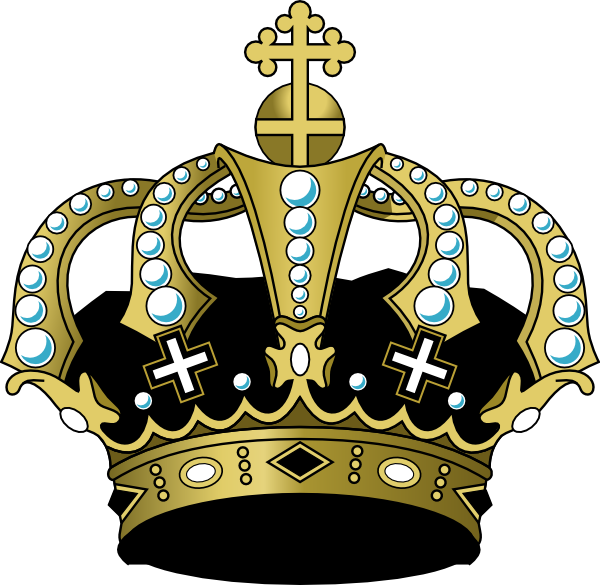
Greek - Hades was the king of the Underworld, god of riches and the dead (not death itself that's Thanatos). Because Hades didn't leave his realm too often there aren't many stories about him besides the telling of him kidnapping his now queen, Persephone and his involvement in the Titanomachy, there's also his minor involvement in the story of Orpheus as he went to retrieve his wife, Eurydice, from the Underworld. It is a little-known fact that of the three brothers Hades is actually the eldest, but in a way also the youngest as he was the last of the males to be regurgitated by Kronos. Have fun eating after that fact!!
Roman - Pluto was the king of the Underworld, god of riches and the dead (not death itself that's Mors). Because Pluto didn't leave his realm too often there aren't many stories about him besides the telling of him kidnapping his now queen, Proserpina and his involvement in the Titanomachy. It is a little-known fact that of the three brothers Pluto is actually the eldest, but in a way also the youngest as he was the last of the males to be regurgitated by Saturn. Have fun eating after that fact!!
Hephaestus or Vulcan
 Greek - Hephaestus was the god of blacksmiths, fire and volcanoes. He was one of the few immortals known not to be beautiful, instead, crippled, with a forever scarred face and limp legs. There are many myths about how this came to be, one of the most believable (and my personal favourite), was where Hera, enraged because of her husbands constant cheating, decided she would try to make Zeus jealous, and conceived a baby without a father, after time she gave to her child. Only to look at him and see pure ugliness, enraged by his imperfection, she cast him off of Mount Olympus, thankfully the child survived and was raised by the sea nymphs, becoming a blacksmith and often crafting the women jewellery.
Greek - Hephaestus was the god of blacksmiths, fire and volcanoes. He was one of the few immortals known not to be beautiful, instead, crippled, with a forever scarred face and limp legs. There are many myths about how this came to be, one of the most believable (and my personal favourite), was where Hera, enraged because of her husbands constant cheating, decided she would try to make Zeus jealous, and conceived a baby without a father, after time she gave to her child. Only to look at him and see pure ugliness, enraged by his imperfection, she cast him off of Mount Olympus, thankfully the child survived and was raised by the sea nymphs, becoming a blacksmith and often crafting the women jewellery.
Roman - Vulcan was the god of blacksmiths, fire and volcanoes. He was one of the few immortals known not to be beautiful, instead, crippled, with a forever scarred face and limp legs. There are many myths about how this came to be, one of the most believable (and my personal favourite), was where Juno, enraged because of her husbands constant cheating, decided she would try to make Jupiter jealous, and conceived a baby without a father, after time she gave to her child. Only to look at him and see pure ugliness, enraged by his imperfection, she cast him off of Mount Olympus, thankfully the child survived, only breaking both of his legs from the impact, and was raised by the sea nymphs, becoming a blacksmith and often crafting the women jewellery.
Hera or Juno

Greek - Hera was the Queen of the heavens and goddess of marriage. Hera was often known to be vengeful when it came to the women that Zeus courted, whether it was their fault or Zeus'. She was known to be quite petty and never forget an insult, she was able to get the mother of Dionysus killed before he was even born by convincing Semele, girlfriend of Zeus. to ask him to reveal his true godly form to her while she was pregnant with her son, Dionysus. Hera, disguised as an elderly woman, tricked the woman when Semele admitted she was secretly dating the god. Hera, enraged, thought of a plan, she convinced the girl that any man could pretend to be Zeus, telling her that if she wanted to know for sure, she needed to ask Zeus to reveal his true godly form to her. When Semele next saw Zeus she asked her question and Zeus obeyed her request, but by merely looking at the godly light he admitted as he transformed, she was incinerated on the spot. What a great wife and sister Zeus has there!
Roman - Juno was the Queen of the heavens and goddess of marriage. Juno was often known to be vengeful when it came to the women that Jupiter courted, whether it was their fault or Jupiter's. She was known to be quite petty and never forget an insult, she was able to get the mother of Bacchus killed before he was even born by convincing Semele, girlfriend of Jupiter, to ask him to reveal his true godly form to her while she was pregnant with her son, Bacchus. Juno, disguised as an elderly woman, tricked the woman when Semele admitted she was secretly dating the god. Juno, enraged, thought of a plan, she convinced the girl that any man could pretend to be Jupiter, telling her that if she wanted to know for sure, she needed to ask Jupiter to reveal his true godly form to her. When Semele next saw Jupiter she asked her question and Jupiter obeyed her request, but by merely looking at the godly light he admitted as he transformed, she was incinerated on the spot. What a great wife and sister Jupiter had there!
Hermes or Mercury
 Greek - Hermes was the god of trade, thieves, travellers, sports, athletes, border crossings and a guide to the Underworld. He was born as another demigod son of Zeus, born to a mother named Maia, the eldest of the seven Pleiades. He was best known for, on the day of his own birth, he snuck out of his crib and stole some of the god Apollo's sacred cattle. The thieving demigod was born at dawn and, while his mother slept, invented the lyre out of a tortoises shell and was playing it perfectly, he had done these things by midday. He then wanted to explore and while searching came across Apollo's cattle herd. the demigod realized his hunger and decided he would take some of the cattle back to the cave he and his mother lived in. Eventually, Apollo discovered Hermes thievery and tracked him down with his gift of prophecy. When Apollo went to Mount Olympus with the case, Zeus found it so amusing that he made Hermes a god. The new god soon was able to quell Apollo's anger by offering him his invention, the lyre, which became a symbol of Apollo.
Greek - Hermes was the god of trade, thieves, travellers, sports, athletes, border crossings and a guide to the Underworld. He was born as another demigod son of Zeus, born to a mother named Maia, the eldest of the seven Pleiades. He was best known for, on the day of his own birth, he snuck out of his crib and stole some of the god Apollo's sacred cattle. The thieving demigod was born at dawn and, while his mother slept, invented the lyre out of a tortoises shell and was playing it perfectly, he had done these things by midday. He then wanted to explore and while searching came across Apollo's cattle herd. the demigod realized his hunger and decided he would take some of the cattle back to the cave he and his mother lived in. Eventually, Apollo discovered Hermes thievery and tracked him down with his gift of prophecy. When Apollo went to Mount Olympus with the case, Zeus found it so amusing that he made Hermes a god. The new god soon was able to quell Apollo's anger by offering him his invention, the lyre, which became a symbol of Apollo.
Roman - Mercury was the god of trade, thieves, travellers, sports, athletes, border crossings and a guide to the Underworld. He was born as another demigod son of Jupiter, born to a mother named Maia, the eldest of the seven Pleiades. He was best known for, on the day of his own birth, he snuck out of his crib and stole some of the god Apollo's sacred cattle. The thieving demigod was born at dawn and, while his mother slept, invented the lyre out of a tortoises shell and was playing it perfectly, he had done these things by midday. He then wanted to explore and while searching came across Apollo's cattle herd. the demigod realized his hunger and decided he would take some of the cattle back to the cave he and his mother lived in. Eventually, Apollo discovered Mercury's thievery and tracked him down with his gift of prophecy. When Apollo went to Mount Olympus with the case, Jupiter found it so amusing that he made Mercury a god. The new god soon was able to quell Apollo's anger by offering him his invention, the lyre, which became a symbol of Apollo.
Hestia or Vesta
Greek - Hestia was simply known as the goddess of the hearth. She was not a very popular or knowledgeable goddess, despite being the first born, although she is also considered the youngest due to the fact she was the last to be regurgitated by Kronos. Because of Hestia lack of myths based or including her, she is known to be quite a peaceful goddess, only having minor inclusion in the Titanomachy and the myth of Dionysus becoming an Olympian. She was known to stay atop Mount Olympus and simply tend to the hearth's flame, never to see them die out. Hestia was also known to be one of the three eternally maiden goddesses, including herself, Athena and Artemis.
Roman - Vesta was simply known as the goddess of the hearth. She was not a very popular or knowledgeable goddess, despite being the first born, although she is also considered the youngest due to the fact she was the last to be regurgitated by Cronus. Because of Vesta lack of myths based or including her, she is known to be quite a peaceful goddess, only having minor inclusion in the Titanomachy and the myth of Bacchus becoming an Olympian. She was known to stay atop Mount Olympus and simply tend to the hearth's flame, never to see them die out. Vesta was also known to be one of the three eternally maiden goddesses, including herself, Minerva and Diana.
Poseidon or Neptune
 Greek - Poseidon was the god of the sea's, earthquakes and horses. He, as well as Zeus, was known to have many children, demigods, gods and monsters alike. Poseidon namely was the father of the fastest horse to ever live, Arion, the first pegasus, Pegasus and many others. Poseidon had pegasus by the now gorgon, Medusa, but long before her curse she was a beautiful mortal woman, there are many different versions of this myth, but I am going to tell this one as it is the most god-like. Medusa was the priest of Athena and by law sworn to maidenhood, but her beauty swayed Poseidon and he decided he must have her. So he chased her down and Medusa ran and hid in the temple of Athena. But, this didn't stop Poseidon, he forcibly took her inside of the temple of Athena. Athena took this a great insult and since she couldn't harm Poseidon she cursed Medusa and turned her into a gorgon. Although in a later myth, when Perseus cut off the gorgons head, the two children of Poseidon sprung from her freshly severed neck, Pegasus and Chrysaor.
Greek - Poseidon was the god of the sea's, earthquakes and horses. He, as well as Zeus, was known to have many children, demigods, gods and monsters alike. Poseidon namely was the father of the fastest horse to ever live, Arion, the first pegasus, Pegasus and many others. Poseidon had pegasus by the now gorgon, Medusa, but long before her curse she was a beautiful mortal woman, there are many different versions of this myth, but I am going to tell this one as it is the most god-like. Medusa was the priest of Athena and by law sworn to maidenhood, but her beauty swayed Poseidon and he decided he must have her. So he chased her down and Medusa ran and hid in the temple of Athena. But, this didn't stop Poseidon, he forcibly took her inside of the temple of Athena. Athena took this a great insult and since she couldn't harm Poseidon she cursed Medusa and turned her into a gorgon. Although in a later myth, when Perseus cut off the gorgons head, the two children of Poseidon sprung from her freshly severed neck, Pegasus and Chrysaor.
Roman - Neptune was the god of the sea's, earthquakes and horses. He, as well as Jupiter, was known to have many children, demigods, gods and monsters alike. Neptune namely was the father of the fastest horse to ever live, Arion, the first pegasus, Pegasus and many others. Neptune had pegasus by the now gorgon, Medusa, but long before her curse she was a beautiful mortal woman, there are many different versions of this myth, but I am going to tell this one as it is the most god-like. Medusa was the priest of Minerva and by law was sworn to maidenhood, but her beauty swayed Neptune and he decided he must have her. So he chased her down and Medusa ran and hid in the temple of Minerva. But, this didn't stop Neptune, he forcibly took her inside of the temple of Minerva. Minerva took this a great insult and since she couldn't harm Neptune she cursed Medusa and turned her into a gorgon. Although in a later myth, when Perseus cut off the gorgons head, the two children of Neptune sprung from her freshly severed neck, Pegasus and Chrysaor.
Zeus or Jupiter

Greek - Zeus was the king of the sky and the gods, god of weather, law and order, destiny and kingship. Zeus was known very well for his numerous affairs and his numerous children including, Ares, Athena, Apollo, Artemis, Persephone, Hebe, Hermes and many others, not just gods either or only demigods. But, Zeus is not just well known for his affairs, but how he defeated his enemies, namely Typhon and Kronos. I would have told the story of Zeus defeating Typhon, but I couldn't find my preferred version of the myth. So, I will explain how Zeus sired his son Perseus, you didn't see that one coming did you? Well here goes. So, Acrisius had only his daughter and he soon received a prophecy saying that his grandson would kill him, so he did the logical thing, he locked his daughter away in a deep hole with the only light coming from the open grate that Danaë, Acrisius' daughter, couldn't reach. So, what did Zeus do, he went and fell in 'love' with her and decided he must have her. With that, he sent his body down into Danaë's prison in the form of a golden shower, and while down there, Zeus took her, then disappearing. When Acrisius found out about his daughter's pregnancy he took her and her soon-to-be-son, Perseus and locked them in a chest casting it into the sea. Perseus and Danaë lived, having had washed up on the land of Seriphus, where Danaë raised Perseus.
Roman - Jupiter was the king of the sky and the gods, god of weather, law and order, destiny and kingship. Jupiter was known very well for his numerous affairs and his numerous children including, Mars, Minerva, Apollo, Diana, Proserpina, Juventas, Mercury and many others, not just gods either or only demigods. But, Jupiter is not just well known for his affairs, but how he defeated his enemies, namely Typhon and Cronus. I would have told the story of Jupiter defeating Typhon, but I couldn't find my preferred version of the myth. So, I will explain how Jupiter sired his son Perseus, you didn't see that one coming did you? Well here goes. So, Acrisius had only his daughter and he soon received a prophecy saying that his grandson would kill him, so he did the logical thing, he locked his daughter away in a deep hole with the only light coming from the open grate that Danaë, Acrisius' daughter, couldn't reach. So, what did Jupiter do, he went and fell in 'love' with her and decided he must have her. With that, he sent his body down into Danaë's prison in the form of a golden shower, and while down there, Jupiter took her, then disappearing. When Acrisius found out about his daughter's pregnancy he took her and her soon-to-be-son, Perseus and locked them in a chest casting it into the sea. Perseus and Danaë lived, having had washed up on the land of Seriphus, where Danaë raised Perseus.
I'm done!!!!!! I've finished!!!!!!!!










